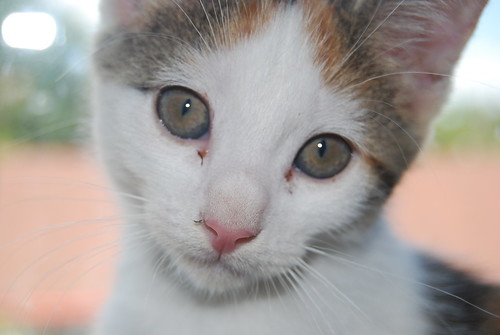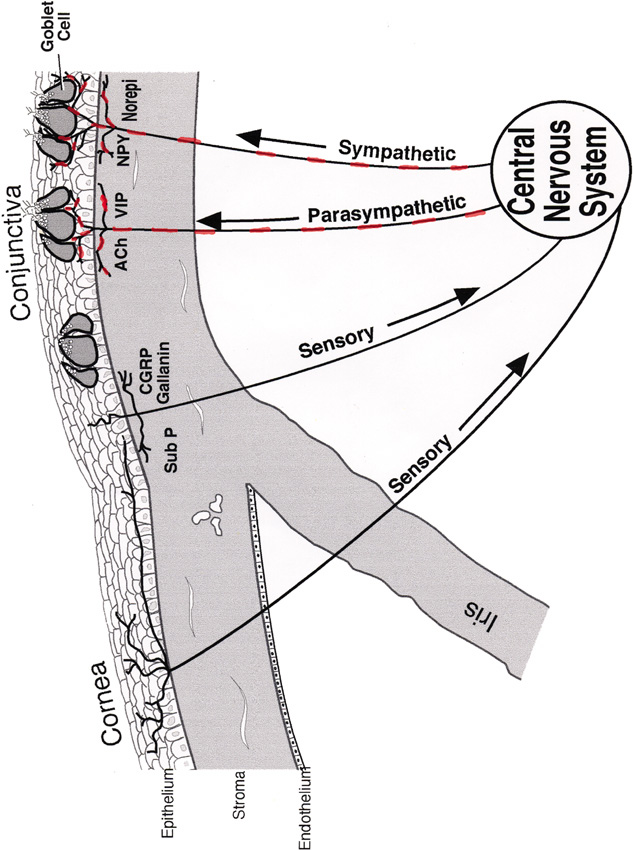Hi,
I would like to discuss this issue. I saw some old posts related the dry eye with the decrease of eye boogers (eye goop).
In these posts, I found some reports of those who had drastic decrease of eye boogers after surgery as Lasik.Boogers eye and mucus not be the same, but the eye boogers basically consists of mucus, ie, the decrease of mucus for any reason reflected in decreased of boogers eye. This is a given objective (not subjective), although many doctors do not relate this data with DES because they do not see our eyes when we stand up of bed.
I think that many patients with DES, especially those who suffered damage to the surface of the eye as Lasik surgery, do not produce eye boogers or have considerable decrease of this, right? WHO DID HAVE DECREASE OF EYE BOOGERS? PLEASE, SPEAK UP!
It is known that many cases of dry eye are related to a problem neural corneal surface and/or conjunctiva (?). The cells of the cornea, conjunctiva and other glandular cells of the ocular surface, especially goblet cells makes mucus. These cells, like other glands in the ocular surface (aqueous and lipid) depend nerve impulses of the ocular surface to make the secretion. In this line of reasoning are doing tests with nerve growth factors (NGF).
SEE:http://www.dryeyezone.com/talk/showt...ed=1#post68725
I've never done lasik surgery, but I had an accident with UVC. Next day I woke up with drastic reduction of eye boogers. The first 4 days I did not have any symptoms, beyond the reduction of eye boogers. Gradually were appearing symptoms such as dry eye and photophobia. Currently I almost no produce eye boogers and I've used various eyedrops, but no very effective…I had loss at least of goblet cells (detected by rose bengal - other vivid stainings did not work very well - and impression cytology) and of central retinal function (only detected by the multifocal electroretinogram - mfERG).
Despite these data, I really believe that my DES is mainly due to nerve damage.
Recently here in dry eye zone, found this link a case similar to mine (http://wwww.uvlightburns.com/id17.html). According to this site, the ultraviolet light from broken metal halide lamp can cause neuronal damage (neuropathy of the cornea) and consequently dry eye. I still need to make the corneal confocal microscopy to confirm this.
It seems that I also had secondary alteration of lipid part of my tears, so much that I had little swelling of the eyelid...
Sorry my english...
Hugs ...
I would like to discuss this issue. I saw some old posts related the dry eye with the decrease of eye boogers (eye goop).
In these posts, I found some reports of those who had drastic decrease of eye boogers after surgery as Lasik.Boogers eye and mucus not be the same, but the eye boogers basically consists of mucus, ie, the decrease of mucus for any reason reflected in decreased of boogers eye. This is a given objective (not subjective), although many doctors do not relate this data with DES because they do not see our eyes when we stand up of bed.
I think that many patients with DES, especially those who suffered damage to the surface of the eye as Lasik surgery, do not produce eye boogers or have considerable decrease of this, right? WHO DID HAVE DECREASE OF EYE BOOGERS? PLEASE, SPEAK UP!
It is known that many cases of dry eye are related to a problem neural corneal surface and/or conjunctiva (?). The cells of the cornea, conjunctiva and other glandular cells of the ocular surface, especially goblet cells makes mucus. These cells, like other glands in the ocular surface (aqueous and lipid) depend nerve impulses of the ocular surface to make the secretion. In this line of reasoning are doing tests with nerve growth factors (NGF).
SEE:http://www.dryeyezone.com/talk/showt...ed=1#post68725
I've never done lasik surgery, but I had an accident with UVC. Next day I woke up with drastic reduction of eye boogers. The first 4 days I did not have any symptoms, beyond the reduction of eye boogers. Gradually were appearing symptoms such as dry eye and photophobia. Currently I almost no produce eye boogers and I've used various eyedrops, but no very effective…I had loss at least of goblet cells (detected by rose bengal - other vivid stainings did not work very well - and impression cytology) and of central retinal function (only detected by the multifocal electroretinogram - mfERG).
Despite these data, I really believe that my DES is mainly due to nerve damage.
Recently here in dry eye zone, found this link a case similar to mine (http://wwww.uvlightburns.com/id17.html). According to this site, the ultraviolet light from broken metal halide lamp can cause neuronal damage (neuropathy of the cornea) and consequently dry eye. I still need to make the corneal confocal microscopy to confirm this.
It seems that I also had secondary alteration of lipid part of my tears, so much that I had little swelling of the eyelid...
Sorry my english...
Hugs ...



Comment